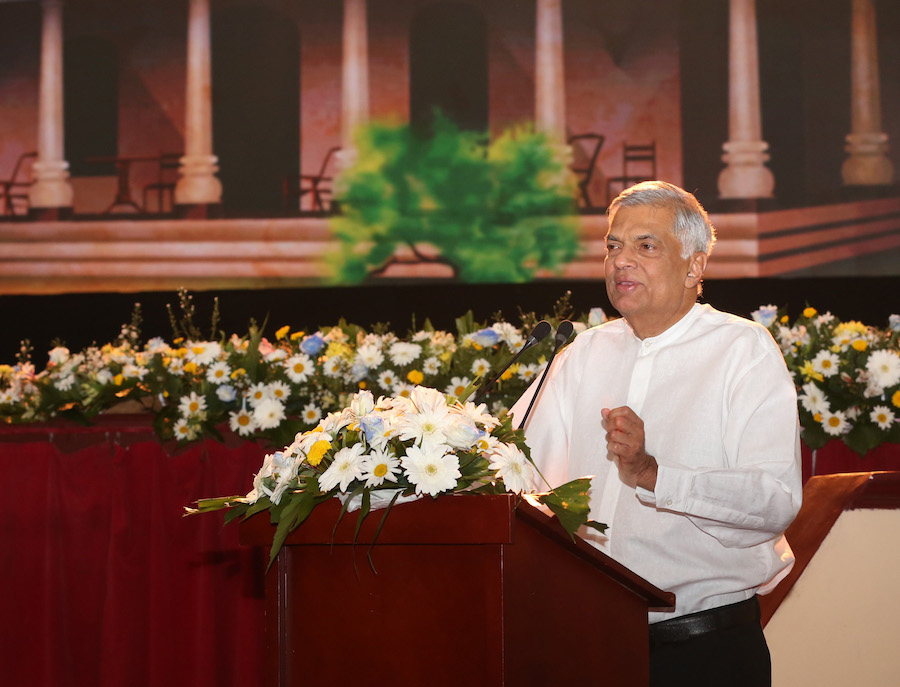Ranil Wickremesinghe 70 Years On – A Kindly Reflexion On His Leadership Style

 “Take him with his deficiencies…he is the best political leader we have today. The fact of his lapses only points to the fact that we are all in an imperfect world. Take him out of the scene and Sri Lanka will be the poorer for that.”
“Take him with his deficiencies…he is the best political leader we have today. The fact of his lapses only points to the fact that we are all in an imperfect world. Take him out of the scene and Sri Lanka will be the poorer for that.”
No Actor
Ranil Wickremesinghe, the Prime Minister of Sri Lanka, is the most unfairly maligned political leader in Sri Lanka. At the same time, he is the most underestimated or underrated. Ranil is also the least flamboyant of leaders. He goes about in his normal shirt and trouser unless on special occasions where he puts on a simple coat and tie. He wears no satakaya because he isn’t interested in trying to act. He is no actor and it is unlikely he would ever be a stage or movie star.
Charisma?
Such characters don’t typically gather charisma-that mystical appeal quality that Max Weber introduced to our vocabulary about authority and leadership. This has been one of the common criticisms of Ranil’s leadership all through the years. On the other hand, charisma is not a stable basis of authority for any leader fo it is derived out of a public subjective faith on the leader. Maybe the leader is inspiring and such faith rests on this inspiring quality. Historically, it is shown to be a fragile basis and once – charismatic leaders soon lose hold on the public imagination. The consequence is that the charisma fades away and the leader has little else to lean on to keep his herd of followers. Weber argued that a process he described as routinisation is the only way a charismatic political or religious leader can continue to have a following and he cited the example of Prophet Muhammed. The prophet’s teachings became institutionalised or ‘routinised’ and his commands became law cemented by tradition and custom. Hence, Islam survived and prospered.
Legal-Rational Style of Leadership
It is no easy task to ensure such phenomenon in the field of competitive politics.
The once charismatic political leader will have to lean back on having his authority being given the aura of legitimacy. Max Weber described this as another style in leadership and he called it the legal-rational style of leadership based on commonly acceptable law. In practical terms it is a democratisation of leadership.The former charismatic leader is now the head of a democratic process.

